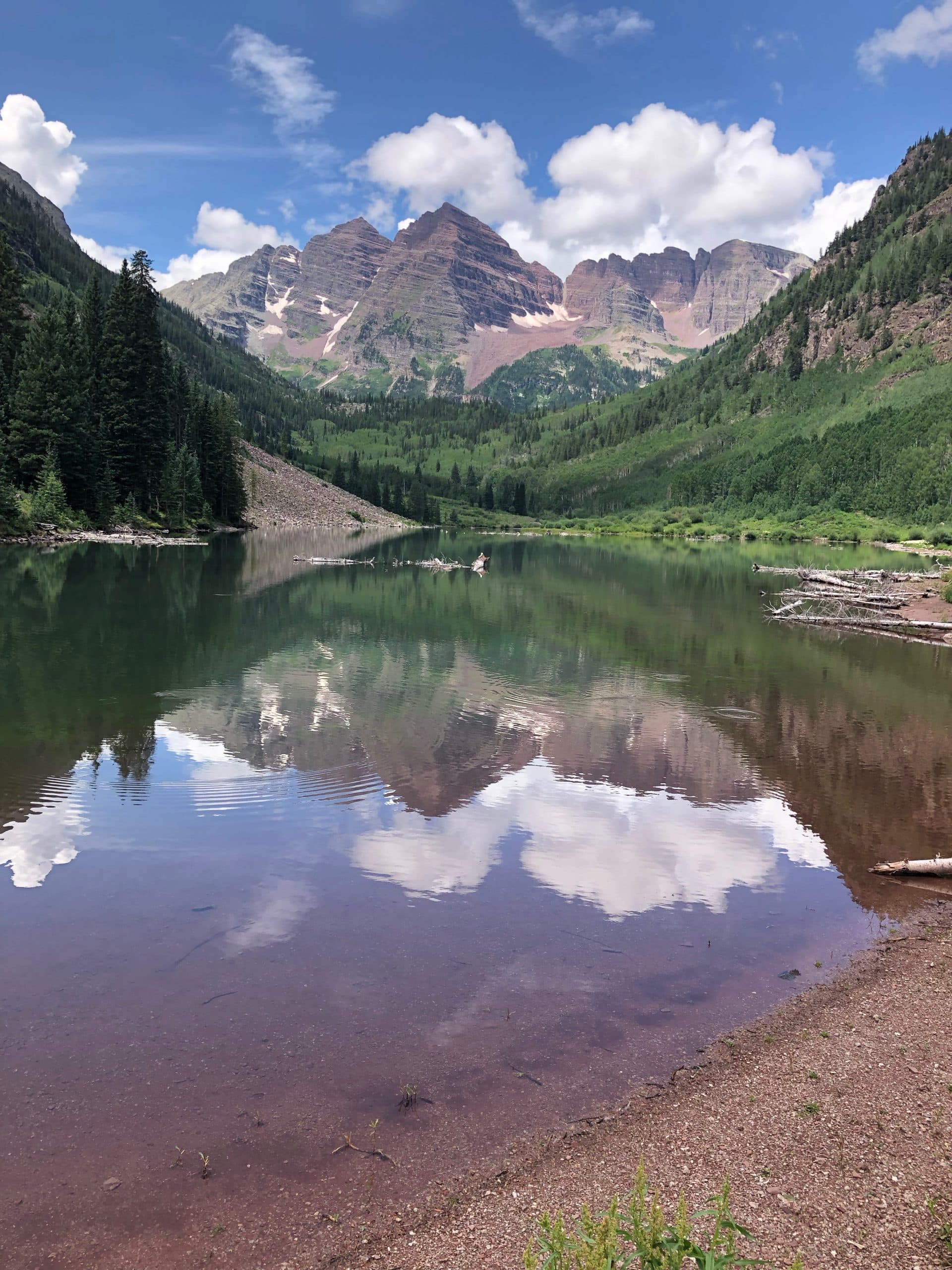Group wants recreation brought under control at Maroon Bells before area is loved to death
Volpe Center hired to study problems, propose solutions at Aspen’s iconic site

After years of applying temporary fixes to try to ease overcrowding at the Maroon Bells Scenic Area, a consortium of local caretakers is determined to come up with a comprehensive plan for management.
Pitkin County is teaming with the city of Aspen, U.S. Forest Service, Roaring Fork Transportation Authority and Aspen Chamber Resort Association to hire the U.S. Department of Transportation’s Volpe National Transportation Systems Center to complete a management plan.
Various management tools have been put in place in recent years to manage the hordes and protect the natural resources near the Maroon Bells. A reservation system was implemented during the pandemic for shuttles traveling between the Aspen Highlands base area and Maroon Lake. Reservations are also needed to park. Traffic has been limited on Maroon Creek Road for more than 40 years.
More restrictions are already in the works. The Aspen-Sopris Ranger District wants to implement a fee and reservation system for backpackers on the popular Four Pass Loop and other hotspots in the Maroon Bells-Snowmass Wilderness. The scenic area is the gateway to the wilderness. A proposal to manage e-bike traveling on Maroon Creek Road will be unveiled later this month.
But a comprehensive plan is needed rather than a piecemeal approach, Brian Pettet, Pitkin County director of public works, told the county commissioners last week.
“That area is seeing unprecedented use these days, and we need to reconsider how we’re allowing people to access the Bells and what they’re doing once they’re there,” Pettet said at Wednesday’s BOCC meeting.
The study area will start at the roundabout on Highway 82 and include the length of Maroon Creek Road. The Maroon Bells Scenic Area’s boundaries are loosely defined by the Forest Service. It includes the “hardened areas” around Maroon Lake, according to spokesman David Boyd. That includes parking lots, trails, picnic areas and campgrounds.
“That area is seeing unprecedented use these days and we need to reconsider how we’re allowing people to access the Bells and what they’re doing once they’re there.” — Brian Pettet, Pitkin County
Pettet told the commissioners the study would include some of the wilderness terrain in the backcountry beyond Maroon Lake, potentially including the trails to West Maroon Pass to the south and Buckskin Pass to the north.
The Volpe Center was hired because of its expertise in multi-model transportation. The agency, based in Cambridge, Massachusetts, was formed in 1970 and bills itself as a leader in transportation systems, analysis, technology and innovation.
The center’s outline for its Maroon Bells project said it will come up a plan that will “address the impacts of increasing visitation by identifying sustainable levels of access to the Maroon Bells Scenic Area while accounting for local economic and other community impacts.”

It will collect and analyze data on past, current and projected recreation uses of the area. It will look at everything from hiking, mountaineering, backpacking, biking, camping, fishing, hunting, photography, environmental education and special events.
“Visitation to the Maroon Bells Scenic Area has increased steadily over the past 10 years with no decrease in visitation likely forthcoming,” the project outline said. “Left unmanaged, and as experienced in recent years, increased visitation can degrade natural resources and the environment, health and safety, and visitor experience.”
Volpe’s plan is supposed to be ready by December 2023. It will cost $225,000, with the members of the consortium splitting up the expense.

In the nearer term, the county commissioners want an assessment of how the shuttle and parking reservation system is operating. Reservations were opened for the summer on April 11 and quickly snatched up.
“It you wanted to visit the Maroon Bells (Scenic Area) this summer, as we’re discovering, it’s hard,” commissioner Greg Poschman said. “It’s hard to get a bus. It’s hard to get parking. It’s hard to get there.”
Commissioner Patti Clapper said she would like analysis to see if rumors that hotel concierges are reserving large blocks of reservations are true.
Two Forest Service officials provided The Aspen Times with different and contradictory answers last summer when asked whether or not operators of tourist accommodations were hogging the reservations for their guests to the detriment of individuals. Pettet told the commissioners he would try to get an assessment of how the reservation system is working.

Support Local Journalism

Support Local Journalism
Readers around Glenwood Springs and Garfield County make the Post Independent’s work possible. Your financial contribution supports our efforts to deliver quality, locally relevant journalism.
Now more than ever, your support is critical to help us keep our community informed about the evolving coronavirus pandemic and the impact it is having locally. Every contribution, however large or small, will make a difference.
Each donation will be used exclusively for the development and creation of increased news coverage.




